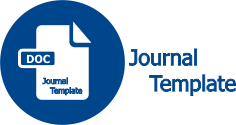Pendekatan Hermeneutika Negosiatif-Otoritatif Speaking in God's Name: Islamic Law, Authority, and Women Pemikiran Khaled M Abou El Fadl
DOI:
https://doi.org/10.33752/discovery.v9i1.6022Keywords:
hermeneutical theory, abou el fadl's hemeneutics, negotiation-authoritativeAbstract
This study discusses how Khaled Abou El Fadl thinks in interpreting religious texts, namely the Qur'an and Hadith. In this case, it is done to be able to understand a religious text which is done by means of negotiation between the text, the writer, and the reader. This research uses a qualitative descriptive method, with library research as the type of this research. The data and data sources were taken from books, journals, and the works of Khaled Abou El Fadl. The documentation method is used as a data collection method, while for data analysis using content analysis. In.this.study, it can.be.seen.the results of Khaled Abou El.Fadl's hermeneutical interpretation of a religious text, namely the Qur'an and Hadith. This can determine the form of interpretation by negotiating between the text (text), author (author), and reader (reader) with a triadic pattern, namely an equilateral triangle, so that all posts have the same portion. Khaled's thought in the interpretation of this text is a renewal to be able to understand the text of the Qur'an and Hadith as the object of this interpretation.
Downloads
References
Abduh, M., & Bellyta, E. P. (2021). KHALED M. ABOU EL FADL: MENUJU PEMBACAAN OTORITATIF ATAS HADIS NABI MELALUI HERMENEUTIKA NEGOSIATIF. https://doi.org/https://doi.org/10.24252/tahdis.v12i2.21105
Al-Qatthan, M. K. (2000). Mabahits Fi Ulum Al-Qur’an, Cet. III. Maktabah Al- Ma’arif.
Al-Suyuthi, J. (1974). Al-Ithqan Fi Ulum Al-Qur’an, ed. Muhammad Abou Al-Fadl Ibrahim. Al-Hayatul Mishriyah Al-Ammah lil Kitabah.
Arifin, B., & Jamaluddin, S. (1992). Terjemah Sunan Abu Daud III. CV Al-Syifa.
Arischa, S. (2019). Analisis Beban Kerja Bidang Pengelolaan Sampah Dinas Lingkungan Hidup Dan Kebersihan Kota Pekanbaru. Jurnal Online Mahasiswa Universitas Riau, 6(1).
Bin Hanbal, M. (n.d.). Dalam Khaled Abou El Fadl dalam Atas Nama Tuhan.
E. Sumaryono. (1999). Hermeneutik: Sebuah Metoda Filsafat. Kanisius.
El Fadl, M. A. (2001). Speaking in God’s Name: Islamic Law, Authority and Women. One World Publication.
Hardiman, F. B. (2009). Kritik Ideologi Menyingkap Pertautan dan Kepentingan Bersama Jurgen Habermas. PT Kanisius.
Kholid, K. M. (2013). Biografi 60 Sahabat Nabi. Ummul Qura.
Muhammed, Q. A. (2014). Al-Tafsir Al-Isyari Bayn Al-Ru’ah Wa Al-Bid’ah. Sayi, Hitit Üniversitesi İlahiyat Fakültesi, 01(25), 93–123.
Palmer, R. . (1969). Hermeneutiks: Interpretation Theory in Schleiermacher, Dilthey, Heidegger, and Gadamer. Evanston, III. Univ. Press.
Raisul. (2015). Pemikiran Hukum Islam Khaled Abou El Fadl. Mazahib, 14(2). https://doi.org/10.21093/mj.v14i2.343
Sofyan, M. (2015). Khaled M. Abou El Fadl: Menuju Pembacaan Otoritatif Atas Hadis Nabi Melalui Hermeneutika Negosiatif. Kalam: Jurnal Studi Agama Dan Pemikiran Islam, 9(02). https://doi.org/http://dx.doi.org/10.24042/klm.v9i2.337
Wicaksono, H. (2020). Tujuan Pendidikan Islam Berbasis Mabadi Khaira Ummah. Edukasia Islamika, 5(1), 17–37. https://doi.org/https://doi.org/10.28918/jei.v5i1.2426
Downloads
Published
Issue
Section
License
Copyright (c) 2024 Ahmad Nuruddin

This work is licensed under a Creative Commons Attribution-ShareAlike 4.0 International License.
















